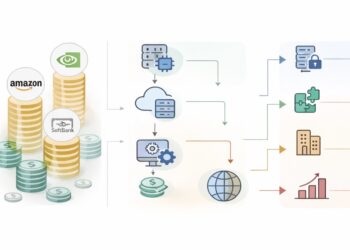As the nation slowly gears up to return to normalcy amidst fear of economic and health crisis, businesses, especially SME’s and MSME’s are hopefully looking forward to government support, tax holiday, and several reforms that can help them make the transition better. While the solutions and possible government support in the near future sound promising, there remains a lot that things to be handled on the ground level for the business during and after lockdown. The COVID-19 crisis has impacted several areas of modern life and changed the very format of living and working.
However, like every situation, this crisis has also come with a silver lining, with accelerated acceptance of new-age technology in mainstream operations, a sense of solidarity in business and personal lives, and a spirit to overcome the challenges thrown to us, as a unified, global population. For businesses, especially SMEs and MSMEs, these challenges can seem detrimental and even fatal. However, if approached strategically, these can be overcome. It is important to understand and prioritize key points, as listed here, which can be helpful in a smooth and successful business transition, after the lockdown:
1. Customer engagement:
The customer is one of the most essential stakeholders for any business and hence, engaging with your customers, immediately after the lockdown, is vital. From informing them about your company resuming operations and assuring them of your continuous partnership and service at best qualities to being open to provide customized services that will suit the current need of the customer in the post lockdown era, could be vitally important aspects of this engagement.
2. Human Resource Planning:
After the end customer, employees are the second most vital asset for an organization, and thus effective HR planning is important. From re-assigning roles and restructuring teams to offering WFH options etc. that can lead to both employee satisfaction and enhance their performance, can go a long way in building up a supportive business ecosystem.
3. Stakeholder engagement:
Re-evaluating marketing and communication campaigns such that it is relevant to the post lockdown era, is vital in the overall success of the business. From employees and consumers to investors, vendors and partners, it is important to inform and assure them of the reopening of office/ services and, work closely with them to create solutions that offer a mutually beneficial work environment.
4. Financial planning:
Economic crisis, at the global and national level, is one of the most feared and anticipated impacts of the COVID_19 pandemic. Just as the marketing and HR re-structuring, it is important to analyse the financial health of the company and re-evaluate the future plans for the business. These may involve selling off stakes or reducing employee salaries, cutting down on credit and repayment of debts etc. can help boost financial immunity for the company.
5. Operational readiness:
Resuming work after more than a month of lockdown could be a task from the operations point of view, especially considering the new, post COVID-19 scenario, where most ancillary business may or may not be operational to full potential. Ensuring agile and productive operational systems is another vital take way from the COVID-19 pandemic and the learnings/ challenges of this lockdown should be effectively used to ensure future preparedness and smooth functioning post lockdown. Creating a relevant and robust operational plan is important to ensure the re-structured HR and stakeholder engagement initiatives are aptly backed through efficient operations and delivery of goods/ service, so as to maintain the good faith and credibility among clients.
6. Technology up-gradation:
A valuable take away from the pandemic is the significance of technology in modern business. Irrespective of the size of the business, it is important to create an agile, relevant and robust technology-based ecosystem to operate efficiently after the lockdown. Introducing newer systems and processes that leverage the best in modern technology, can go a long way in fortifying your business from the impact of a potential crisis in the future, while helping you move ahead of the competition, after the lockdown.
Disclaimer: Author of this article is Agnelorajesh Athaide, Views expressed in this article are his own




















